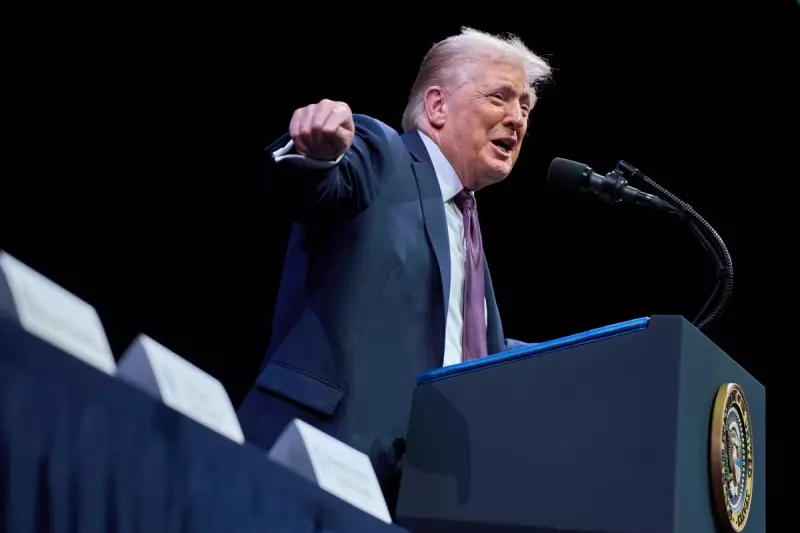
In a political paradox that is confounding analysts, former President Donald Trump's approval ratings have failed to capitalise on what many perceive as a robust economic upturn, according to a fresh set of polling data.
The survey, conducted by renowned pollsters, reveals a nation starkly divided along partisan lines, with economic indicators doing little to shift the entrenched opinions of the American electorate.
The Numbers Tell The Story
The data presents a clear picture: a significant majority of respondents acknowledged the strength of the US economy, with many pointing to a bullish stock market and positive financial news. However, this economic optimism has not translated into a boost for Trump.
His approval rating remains locked within a narrow band, largely unchanged from previous months, suggesting a deep and perhaps unbridgeable divide in the political landscape.
The Partisan Divide: A Chasm Too Wide?
Digging deeper into the poll, the reason for this stagnation becomes apparent. The results show a near-perfect correlation between political affiliation and approval of the former president.
Republican voters continue to express strong approval, frequently citing his economic record and policy agenda as key reasons for their support.
Conversely, Democratic voters overwhelmingly disapprove, with their views largely unmoved by positive economic reports, focusing instead on other aspects of his presidency and political style.
This suggests that for many Americans, their political allegiance is a stronger determinant of their opinion than traditional economic metrics.
What This Means for the Political Landscape
This disconnect poses significant questions for political strategists and commentators. It challenges the long-held assumption that a strong economy invariably leads to higher approval ratings for a leader.
In today's hyper-polarised climate, it appears that non-economic factors, including cultural debates and partisan identity, may hold greater sway over public opinion than ever before.
The poll indicates that Trump's base remains solidly behind him, but his ability to attract voters from outside his core support appears limited, regardless of economic conditions.





